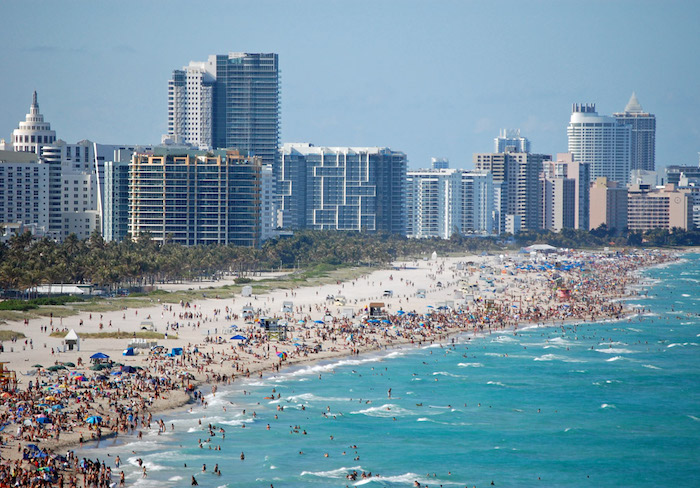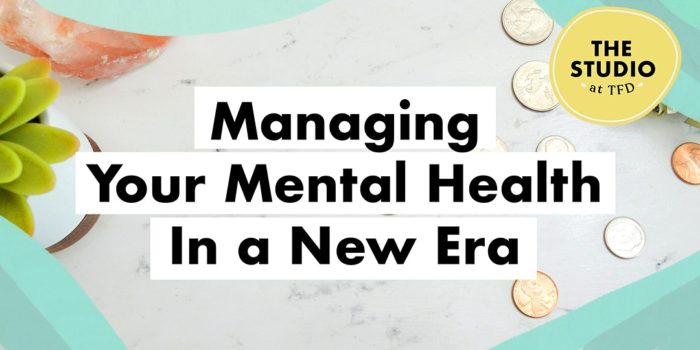What It’s Really Like To Live In Florida Right Now

This past weekend I went to the beach. As a born and raised Floridian, any other time in my life, that’s not exactly news. The beach has always been my place. My escape. High school days were spent skipping study hall to drink spiked slushies at the pavilion with my best friend, our skin tanning, and our hair sunbleached. The surf, the heat, the humidity — it’s part of my soul. It’s in my blood.
My state is riddled with people going out to bars and restaurants, parks, and events. Daily, I turn down invites for happy hours, dinners, and parties. And to be perfectly honest, it makes me feel crazy.
But in 2020, deciding to go to the beach for the first time in close to half a year was a really difficult decision. After months of staying inside – not even leaving my house for groceries or doctor appointments or prescription refills — I agreed to go to leave the house for a not-so-essential reason. My brother was heading home to Seattle after working remotely from my parents’ house for months and wanted to feel the sand between his toes before going back to gray skies and cool weather.
So I caved. After saying “no” for weeks, I gave in and agreed, as long as we did it “safely.” I loaded my bag up with extra masks, multiple bottles of hand sanitizer, and a healthy dose of judgment, and off we went. In fairness, I knew it would be bad. There’s a reason Florida is all over the news.
The past few months have been brutal across the globe. Deaths and loss of jobs, economic downfalls, and mental health spirals. Coronavirus has stripped us not only of our basic human needs and health, but also of our identities and small joys and pleasures. My olive skin is white, my beach towels are sand-free, and my camera roll is painfully sunset-less. But I’ve managed to stay healthy. My family hasn’t contracted the virus. I still have a job. I’m one of the abundantly lucky ones.
Living in Florida right now is no longer funny. It’s not even just embarrassing. It’s officially deadly.
Admittedly, Florida has always had a bad rap. From alligators crossing the road, rich retirees spending their days on yachts named after ex-wives, and “Florida Man” making the news for the most ridiculous crimes, living here has always been lowkey embarrassing. Before, however, it was kinda funny. I could laugh off the Florida jokes because yes, the state is a hot mess full of golf playing, boat cruising, daiquiri drinking year-round vacationers. But it’s where I was born, where I was raised. And besides, it was worth the teasing to rock tanned skin and sandals year-round.
As a mask-wearing, social distance-adhering, hand-washing fiend, however, living in Florida right now is no longer funny. It’s not even just embarrassing. It’s officially deadly. As of July 21, Florida has 360K confirmed cases of Coronavirus, and 5,071 people have lost their lives thus far. According to a piece published to the Tampa Bay Times on July 20, “for the fifth day in a row, Florida logs more than 10,000 coronavirus cases.” Compare this to Vietnam, a country about ¼ the size of my state: According to Healthline, “[The] country of 92 million people that shares a border with China, where the outbreak began, had only 271 confirmed cases of COVID-19 and zero reported deaths as of May 5.” To give you a (very) general idea, if we divide Florida’s population in quarters to make it roughly the same size as Vietnam, this would be comparable to 90K cases in the sunshine state. I don’t need to tell you how horrifying that is — the numbers clearly speak for themselves. My friends, my neighbors, my fellow sunshine dwellers are absolute fools.
During my beach visit, children were screaming on the playground, meeting each other for the first time, their faces mask-free and their hands touching each other in games of tags. Parents were barbecuing on grills, running from tent to tent to borrow ketchup from strangers in exchange for craft beers in each other’s coolers. College students, twenty-somethings, and underagers were blasting music from their parents’ boats. Their Trump flags waved in the wind as they passed handles of Fireball to each other, drinking deeply straight from the bottles and sharing their joints with the new friends they’ll forget they met the next day.
I lasted about 20 minutes on my tiny patch of grass before telling my family we needed to leave.
I chose a spot in the grass, too turned-off by the overcrowded sand, and sat in fear as my husband and brother splashed in the water. Every direction I looked, I saw people breaking the CDC’s guidelines — close contact, going maskless, dining and shopping, and drinking indoors, all within close proximity of others.
I lasted about 20 minutes on my tiny patch of grass before telling my family we needed to leave. I’ll be the first to admit: It was 20 minutes too long. During that time, any one of us could have been exposed. We could then, in turn, pass the virus onto our 60-year-old parents. Onto our mother, a nurse who works in an elderly care facility.
Few times in my life have I felt as selfish as I did during those 20 minutes, and I’m still grappling with the guilt. But that was just one person, one decision, one 30-minute mistake. My state is riddled with people going out to bars and restaurants, parks, and events. Daily, I turn down invites for happy hours, dinners, and parties. And to be perfectly honest, it makes me feel crazy. How are my friends — teachers and engineers and sales reps — comfortably putting themselves at risk? Comfortably putting others at risk?
The hard truth is, I can’t control them. I can’t force my engaged friends to cancel their weddings and bridal shows. I can’t stop the parties and indoor dining. I can’t even force my friends to wear masks. Instead, I can do what I’ve been doing all along. What we all needed to do all along. I can stay at home. I can wear a mask when I’m forced to leave my home. And I can turn down invitations, no matter how much guilt I receive.
My state might be on the wrong side of not only this crisis but history in general, but that doesn’t mean I have to be. The more right people in the wrong places staying home, speaking out, and flattening the curve, the better the chances of helping other people stay healthy and safe — even the ones who choose to be selfish.
Rachel Varina is a social media, digital marketing, and editorial expert living in sunny Tampa, Florida. When she’s not creating content or collaborating with brands, you can catch her devouring thriller novels and supporting pineapple in the great pizza debate with her husband and two rescue pups by her side. You can find her on Twitter and Instagram.
Image via Wikimedia Commons
Like this story? Follow The Financial Diet on Facebook, Instagram, and Twitter for daily tips and inspiration, and sign up for our email newsletter here.

